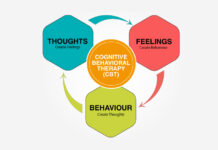
Viva speaks to Dr. Peter Fisher, the physician to Her Majesty Queen Elizabeth II, about the application and integration of homeopathic medicine into mainstream health care.
BY INNA LEVCHUK
Homeopathy, widely used in Europe, is becoming more mainstream in North America. Based on the principle of “like cures like,” this system of alternative medicine uses micro-doses of a substance that cause symptoms to stimulate the body’s self-healing response.
What is homeopathy?
According to Dr. Fisher, homeopathy has a wide range of applicability, varying from symptomatic treatment of short-term problems—cold, hay fever, migraines—to, as he puts it, perhaps the most interesting and the most relevant phenomenon in the modern healthcare context—the constitutional treatment of people, not diseases.
“Which is of great interest in an era when so many people have multiple or complex illnesses,” continues Dr. Fisher. “From the conventional perspective, they’ve become almost nothing but a bundle of diseases, each to be treated with one, two, three or four drugs. With homeopathy, you can take a completely different perspective and say, ‘This is not a bundle of diseases, this is a person with a specific pattern of suffering.’”
The question of integration
According to Dr. Fisher, homeopathy should be used in an integrative fashion.
“Nobody has all the answers to the myriad faces of human suffering. The whole point of integration is to combine the best of both worlds,” he says.
Dr. Fisher believes conventional medicine has achieved effectiveness in treating multiple conditions—especially with the help of antibiotics that are “wonderful drugs when they are appropriately used.”
“The problem is that very often, they are not used properly,” says Dr. Fisher. “Immunization has saved lives of millions and millions of people, mostly children.”
He believes that homeopathy must be integrated not only with conventional but also with other forms of natural medicine.
“In our hospital, we use a lot of acupuncture for chronic pain,” he says. “It’s a great treatment for chronic back pain.”
Applications
Dr. Fisher emphasizes that homeopathy can’t replace immu- nization.
“The first thing to say is that homeopathy is not anti-immunization, not anti-vaccination. Homeopathy was actually invented the same year as vaccination in 1756. Samuel Hahnemann, the founder of homeopathy, was very strongly in favour of vaccination.”
According to Dr. Fisher, while homeopathy can be applied for a number of self-limiting minor complaints, such as coughs, colds and allergies, it can be successfully used as a part of cancer treatment.
“We have a cancer centre in our hospital,” says Dr. Fisher. “We don’t claim to cure cancer but we treat the symptoms—the symptoms of the treatment of the cancer, such as chemotherapy, or the radio therapy. Fantastically, we get very positive feedback.”
Use in children
According to Dr. Fisher, homeopathic medicines are a very popular choice for children for a variety of common conditions, such as teething and colic.
Coughs, colds and sore throats are often treated with antibiotics, which, Dr. Fisher says, often leads to recurrent infections.
“There is sufficient evidence that it is a slippery slope: the more antibiotics you get, the more likely you are to get another infection.”
According to Dr. Fisher, treating children with homeopathic medicine can reduce the use of antibiotics in them, providing adequate results and also improving their parents’ quality of life.
Challenges
According to Dr. Fisher, in around 1890, a quarter of all U.S. physicians were homeopaths. This number dropped drastically through the 20th century and homeopathy was close to disappearing around the 1970s.
Dr. Fisher says although interest in homeopathy has been steadily growing these days, there are a number of challenges facing the industry. One of them is a large international sceptical movement that has a negative impact on the public perception of homeopathic medicines.
According to Dr. Fisher, unfortunately, there is an informational gap when it comes to homeopathic medicine.
“You will find websites that say, ‘Don’t immunize your kids, go against autism’—that’s very damaging,” he says.
Dr. Fisher is confident that the best way to create awareness about homeopathic medicine is through doctors’ cooperation as well as the public involvement.
“The public are our best advocates,” notes Dr. Fisher. “I think you need alliances involving the public, involving the industry, involving the practitioners to bring high-quality, balanced, sensible and relevant information.”
Integration
According to Dr. Fisher, integrating homeopathic medicine into mainstream health care systems will reduce the economic burden that many countries are facing today. The cost around conventional medicine is associated not only with the cost of medical substances but also with the cost of work and time necessary to produce the medication, plus, in many cases, it adds up to treating its adverse effects, says Dr. Fisher, also noting that homeopathic medicines are generally cheap and are very safe with no evidence of serious side effects.
“I emphasize that I am not knocking the conventional medicine, it has achieved miraculous things,” reiterates Dr. Fisher. “A huge number of diseases vanished but unfortunately, it doesn’t mean the end of human suffering. The benefits are that homeopathy can treat the symptoms that are difficult to treat otherwise and most importantly, it can reduce the burden of the vastly used drugs that are being prescribed.” VM
It’s recommended to see both your homeopathic and your family doctor and let them work together to ensure the best outcome. Also, always be open about the medications you are taking to minimize the risk of drug interactions.
Dr. Peter Fisher, clinical director and director of research at the Royal London Hospital for Integrated Medicine, Europe’s largest centre for integrative medicine. He is also physician to Her Majesty the Queen.
Dr. Fisher is a member of the World Health Organization Expert Advisory Panel on Traditional and Complementary Medicine and a member of the Advisory and Editorial Board, Cochrane Collaboration Complementary and Alternative Medicine Field. A Fellow of the Royal College of Physicians of London, Dr. Fisher is accredited as a specialist in both homeopathy and rheumatology.











